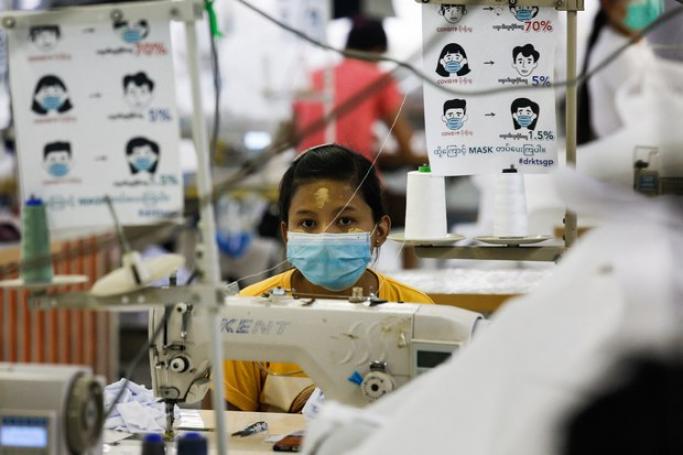In Myanmar a concerning trend has emerged as workers' rights continue to erode. Every day, workers in the country confront a multitude of rights violations, and in recent months, there have been cases where they are compelled to work late into the night without receiving the overtime pay they deserve.
Workers at the Lian Cheng (Myanmar) Garment Factory in Hlaing Tharyar Township Industrial Zone (2), Yangon Region, did not always get their day-offs and were compelled to work late into the night without receiving overtime pay, Moe Sandar Myint, Chairperson of the Federation of General Workers Myanmar (FGWM), told Mizzima, citing the workers.
“For a worker earning a daily wage of 4,800 Kyat, the overtime pay for one hour amounts to 1,200 Kyat. [Note: US$1= 3,300 Kyat; the exchange rate on September 16]. Some factories may adjust the daily wage, which subsequently affects the overtime rate. After eight hours of work, overtime is only allowed for a maximum of 3 hours a day. But the workers had to work the entire night, and some had to work till midnight. Some workers are even required to work their days off. Even when employees do work overtime, they often do not receive their full overtime pay, and there are instances where some workers receive no overtime pay,” she said.
Workers at the factory reportedly wished to protest against these workers’ rights violations. However, their voices remained stifled due to the prevailing atmosphere of fear under the military junta in Myanmar. The incidence of labour rights violations in Myanmar's factories has been increasing, posing a significant challenge for the FGWM to address effectively, as they've done in the past, Moe Sandar Myint said.
The Lian Cheng (Myanmar) Garment Factory is Chinese-owned and employs about 1,000 workers.
Factory workers in Myanmar have faced persistent violations of their rights since the onset of the global COVID-19 pandemic, and many assert that the military coup has only exacerbated their situation. Throughout the pandemic, they have experienced dwindling wages and witnessed a trend where full-time workers are being replaced with day laborers under the guise of workforce reduction, said Moe Sandar Myint.
“It is no longer possible to deal with labour rights issues in the country. Many workers are suffering. Workers are being unfairly forced and exploited by employers who take advantage of political crises. Currently, labour rights violations are at the highest level in Myanmar's workplaces,” she said.
Lian Cheng factory is adhering to the minimum daily wage rate of 4,800 Kyat, a figure that has remained unchanged since 2018. However, in some instances, workers in other factories are subjected to even lower daily wages, as low as 3,600 Kyat. In such cases, if workers dare to protest, the junta responds with threats and arrests.
In Myanmar, where the cost of living is on the rise, the current minimum daily wage of 4,800 Kyat falls significantly short of meeting basic needs. However, workers are hesitant to voice their concerns due to the prevailing fear of reprisals from the junta. Despite the news media's repeated coverage and exposure of factory labour rights violations, authorities still fail to take action against the factories.
Myanmar’s Minimum Wage Law was established on March 22, 2013. In 2015, the minimum wage was initially set at 3,600 Kyat for an 8-hour working day. Subsequently, in 2018, the rate was increased to 4,800 Kyat.
Following the 2021 military coup in Myanmar, employers have reportedly been disregarding workers' rights, subjecting them to oppression and exploitation. Furthermore, the violation of freedom of association is causing the decline of trade unions' influence and effectiveness.












